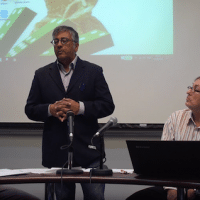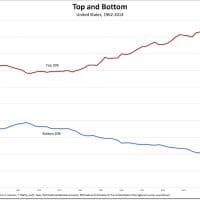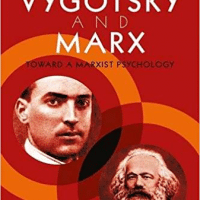-
This radical plan to fund the ‘Green New Deal’ just might work
With what author and activist Naomi Klein calls “galloping momentum,” the “Green New Deal” promoted by Rep.-elect Alexandria Ocasio-Cortez, D-N.Y., appears to be forging a political pathway for solving all of the ills of society and the planet in one fell swoop.
-
Bigoted paternalism behind “Russians targeted African-Americans” NY Times article
The outlandish “Russian interference” narrative just took a turn from the banal to blatantly disrespectful. For the past two years, the punditry on the supposed left have been peddling the lie that the thousands of dollars spent on Facebook and Google ads—purportedly at the behest of Putin—had more impact on the outcome of the 2016 elections than the billions of dollars that were unleashed by corporations, lobbyists and the dark moneyed oligarchs.
-
“A free Palestine from the river to the sea”
It is not uncommon for a mainstream media commentator to be fired for a bigoted or violent comment on air-or off air. As far as I know, there was never a person specifically fired for advocating non-violence and the equal treatment of a group of people.
-
Plan Oder Markt: the battle of ideas between Austro-Marxism and neoliberalism in Vienna
Co-sponsored by SFU’s Institute for the Humanities, School for International Studies, Department of History, & Department of Sociology and Anthropology.
-
Starting again from Marx
Let us start again from Marx.(1) Why? Is it because we are communists? No, this answer is not convincing. We could start again from somewhere else, from Lenin, or Mao; or, we could believe that current feminist or anti-racist struggles have no need for Marx; we could even think that Marx’s Eurocentrism makes him an enemy.
-
Hungarians hit the street against ‘slave law’ that increases overtime
According to the new provision that was passed on Wednesday, employers can demand as much as 400 hours of overtime a year and can take three years to disburse the payments for the same.
-
Every single member of U.S. Congress approved crushing sanctions on Nicaragua
After defeating a violent U.S.-backed coup attempt, Nicaragua’s elected government faces the NICA Act. The bill aims to force the Sandinistas from power by ratcheting up economic despair.
-
The Yellow Vest movement strengthens in France
It is hard to count demonstrators spread out across thousands of mobilisations, but it seems that over half a million people were involved in “Act Four” of the Yellow Vest mobilisation in France on Saturday 8 December. In Bordeaux, a huge joint demonstration between university students and Yellow Vests chanted: “Students and Yellow Vests, same Macron, same struggle!”
-
William Blum, U.S. Policy critic derided by NYT, dies at 85
You know you’ve lived well—well enough to rattle the establishment—when the New York Times smears you in the obituary it runs about you (FAIR.org, 6/20/13).
-
Yellow-vest protests in France-an extraordinary political school
Hello, Professor Drweski. My name is Maria Cernat. I am a feminist, an academic and a journalist writing for Baricada.org. I am a lecturer at the Communication Sciences and International Relations Department, Titu Maiorescu University. I was very curious, and I am sure our readers are too, about the situation in France. I have a few questions that I hope you could answer for our readers.
-
Legacies crucial for the commons
The 150th birth anniversary year of Mohandas Karamchand Gandhi and the 200th birth anniversary of Karl Marx went by this year. Such anniversaries can become occasions of tokenism—for instance, the Indian government has set up a committee with more than 100 members to coordinate celebrations of Gandhi’s anniversary, crammed with political bigwigs from various parties, a few academics and Gandhian workers.
-
We have no choice but to live like human beings
One in eight people across the world live in informal settlements. This, despite the “right to a standard of living adequate for the health and well-being of himself and of his family” as declared by the International Declaration of Human Rights. Reality, however, is very far from this.
-
Dollarization in the United States
The United States is increasingly becoming dollarized. That’s because, for decades now, those at the bottom have been left behind, forced to attempt to get by in ever more precarious conditions.
-
Why are people hungry in North Carolina?
Tina Tru explains the facts about hunger in North Carolina—and looks at the kinds of policies, both local and system-wide, that could make a difference.
-
Towards a convergence of struggles in France?
Television channels around the world had the pleasure of broadcasting street events that took place in Paris on Saturday, Nov. 24. Perhaps not all of them have taken care to provide their progressive viewers with the necessary elements to move beyond a sense of chaos and understand the current situation.
-
PSUV sweeps local Council Elections, seizes historic opposition strongholds
The low turnout can, in part, be attributed to opposition abstention, but is comparable to previous elections of this nature.
-
Building a Marxist psychology
Carl Ratner is one of few psychologists working today who aims to develop psychology on an unabashedly Marxist foundation. The dominant narrative in psychology is that our minds and our society are direct manifestations of human biology.
-
Cops in France brutalize high school students who join Yellow Vest protests
A scene of ordinary life in France, in these times of conflict: On Thursday, Dec. 6, late morning, in front of the gates of a secondary school in a very peaceful town in the Paris suburbs, about 100 students aged 15-17 are strolling from their high school to go to lunch, chatting, joking and relieved that the half-day classes are over.
-
‘Slave Bible’ converted slaves to Christianity by omitting parts that could lead to uprising
A new exhibit at a Washington, D.C., museum featuring an abridged version of the Bible sheds light on how Christian missionaries converted enslaved Africans to Christianity by teaching them the Gospel…except the parts about freedom, equality and resistance.
-
Marc Lamont Hill and the Legacy of Punishing Black Internationalists
Hill’s bold statement to the UN is part of the internationalist Black radical tradition, exemplified by Paul Robeson, the Black Panther Party, and today’s Black Lives Matter movement.




















